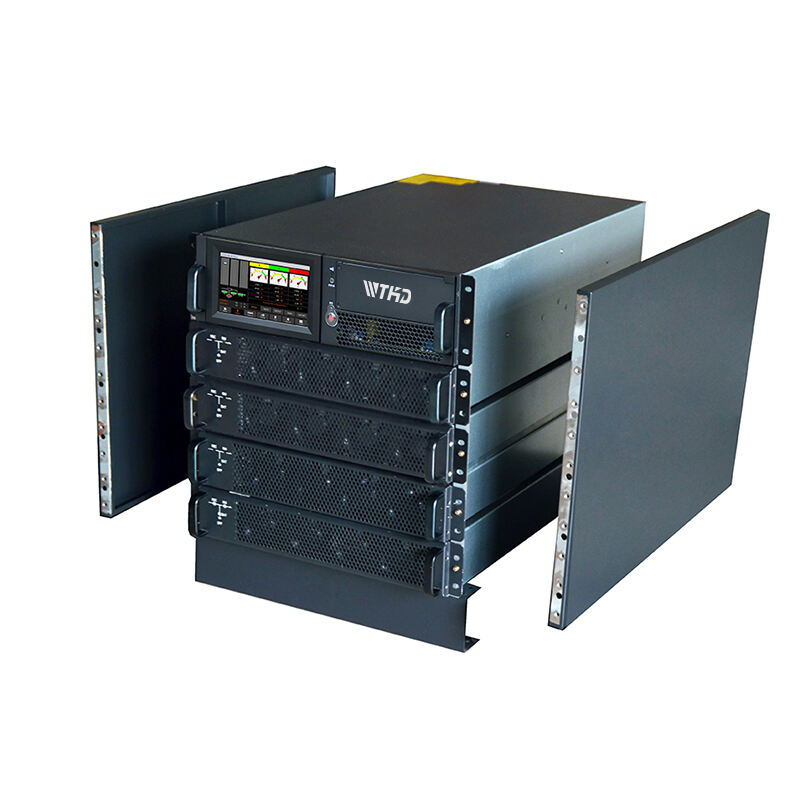Even short power failures can disrupt important operations, leading to data loss, downtime, and customer dissatisfaction. That’s why more businesses are using modular UPS (Uninterruptible Power Supply) systems. With modular UPS, businesses may add power modules to their systems to enhance their capacity in modest steps, as opposed to fixed-capacity models, which require replacing the whole unit. Because of this, modular UPS is perfect for data centers, businesses that are expanding and places where reliability and flexibility are very important.
Scalability: Growing with Your Power Needs
Growing businesses require expanding power solutions, and traditional UPS systems can be inefficient. When you want to upgrade a fixed capacity UPS, you usually have to buy a whole new unit, which is both expensive and challenging. Modular UPS is a game-changer because you can add self-contained modules as your demands start growing, without having to stop operations. A 20-kW system was installed in one of the regional banks and when the bank expanded, they added merely two 10 kW modules to save money and avoid downtime. Modular UPS is the ideal solution to any growing businesses since it is scalable, reliable, and adaptable.
Hot-Swappable Modules and Maintenance Benefits
Maintenance is one of the significant problems with traditional UPS systems—to repair one unit, you have to turn everything off, or switch to backup power, which is not a good choice when working 24/7 operations. This is addressed with UPS systems that are modular and have hot-swappable modules meaning that you can replace individual power units without interrupting the running of the system. For example, when a data center server in an e-commerce company has a worn-out module, a technician can just replace it without shutting down the business- no sales are lost, no interruption and reduced stress on IT personnel. The design also allows in-house teams to perform routine maintenance which saves service costs and response time. In the long run, the hot-swappable modules will ensure the system is more reliable, easier to manage, and more appropriate to meet the increasing business demands.
Energy Savings and Space Optimization
Operating a UPS system is safe and secure, yet it may add to your power bill, this is particularly true with an older fixed-capacity unit that can be operating at less than their optimal load and, wasting power as well as releasing more heat. The modular UPS systems address this issue by providing the ability to install only the power modules you require, in order to bring the system as close to its optimum load as possible to achieve increased efficiency and billing reduction. They also are space saving, as you can just begin small and grow when necessary, saving space in overcrowded server racks. A mid-sized healthcare clinic serves as an example of the implementation of digital records and lab equipment that started with three modules but eventually added two more ones as it expanded—all in the same small cabinet. Modular UPS systems are highly efficient in converting power and smart load balancing, which save energy through minimizing wastage, increase the battery life, and create a neater, better environmentally-friendly solution.
Real-World Applications in Data Centers and Industrial Facilities
UPS modular systems have become one of the most popular options in the data centers and industrial facilities due to its flexibility, reliability and easy servicing which is required by high demand operations. A medium-sized data center that is used to serve a cloud services provider, during peak demand like a big online sale, modules can be added, and vice versa, to maintain the efficiency of the operations without wasting energy. Similarly, in industrial environment, food processing facility powered by a modular UPS might replace a module under maintenance without halting its automated package conveyor and preventing downtime and product loss. Modular UPS enables companies to expand with ease knowing that upgrades, planning and budgeting is much easier.

